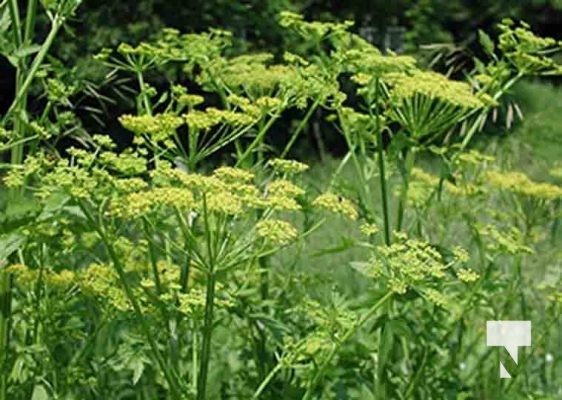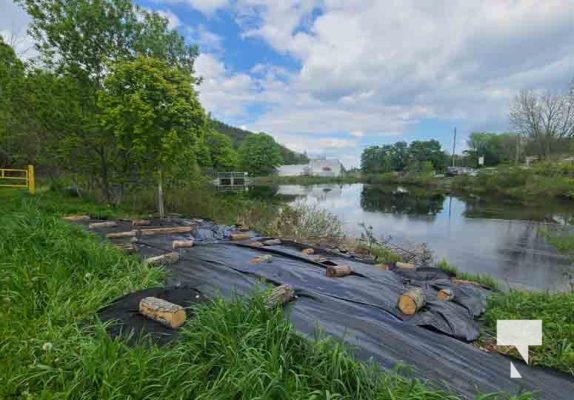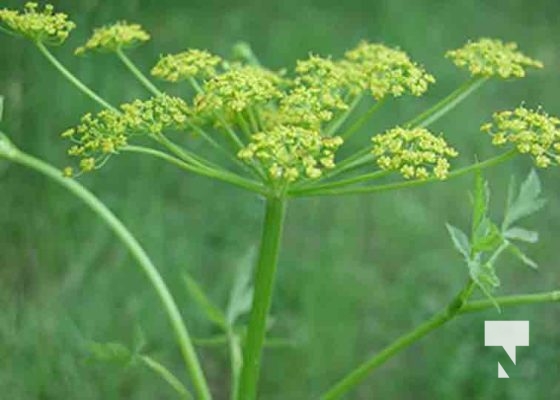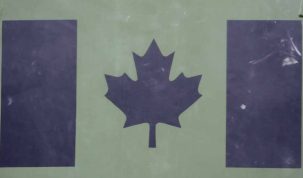Wild parsnip has been identified for the second consecutive year at the Warkworth Conservation Area, specifically along the northwest and south bank of the pond. In response, Lower Trent Conservation staff has opted for occultation as a method to try and eradicate the wild parsnip. Occultation is a technique involving the placement of opaque tarps over affected areas, aiming to harness solar energy to heat the soil underneath, effectively killing both emergent plants and any seeds.
“Members of the public spotted a small cluster around the pond last year. Unfortunately, this spring when we went back to examine the area, we saw that it had spread,” said Chris McLeod, Conservation Lands Supervisor, “We have decided to cover the area to kill any seed bank that may have dispersed from previous years. The seeds are easily spread by wind and water, as well as by mowing or other equipment.”
Wild parsnip, also known as poison parsnip, is a member of the carrot/parsley family. It typically grows a low, spindly rosette of leaves in the first year while the root develops. In the second year, it flowers on a tall stalk and then dies. The plant can form dense stands and spreads quickly in disturbed areas such as abandoned yards, waste dumps, meadows, open fields, roadsides, and railway embankments. Like other members of the carrot family, it produces sap containing chemicals that can cause severe burns, rashes, or blisters when exposed to sunlight.
Identifying wild parsnip is essential for effective management. Look for tall plants, reaching up to 1.5 meters in height, with a single smooth stem ranging from two to five centimeters thick. Its compound leaves grow in pairs, featuring sharply toothed leaflets resembling mittens. Keep an eye out for umbrella-shaped clusters of yellowish-green flowers, typically 10 to 20 centimeters across.
If you have seen Wild Parsnip or any other invasive species please visit www.invadingspecies.com for more information or to make a report.



























